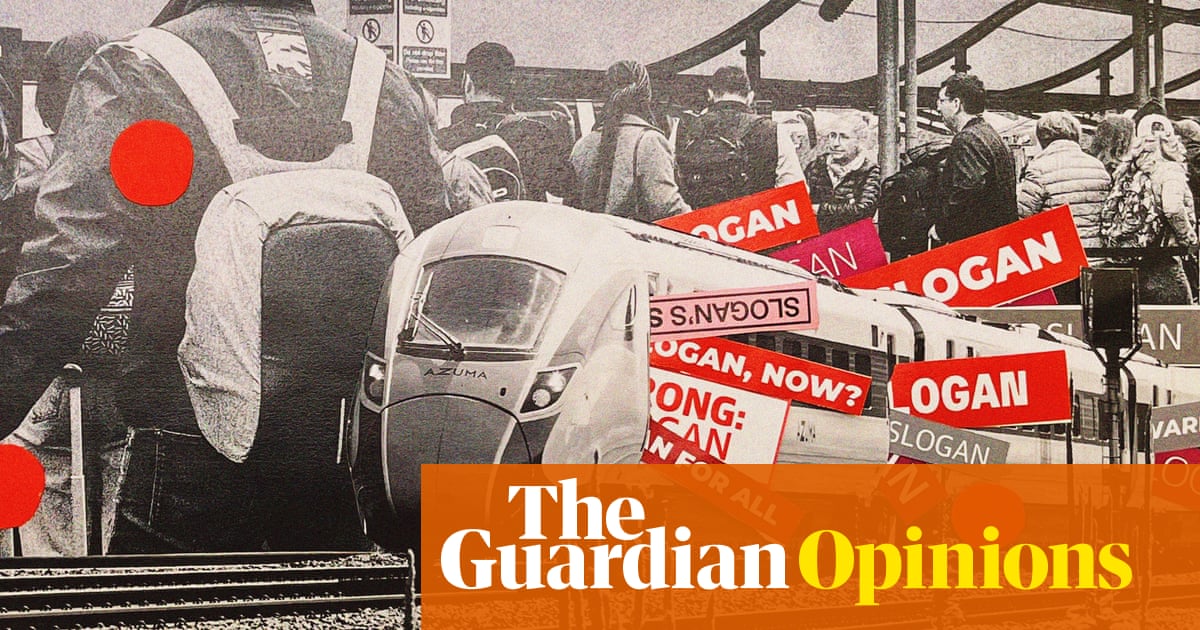
Labour must not make the mistake of being too timid on immigration. It will not be enough to stop doing some of the more egregious things that the current government proposes – such as sending refugees to Rwanda – and returning to a “sensible” level of hostility. Labour needs to be bold enough to undertake a radical overhaul of our failed immigration and asylum systems, and to start to manage the issue pragmatically and humanely for the benefit of all.
It is vital to break completely with the negative narrative about immigrants – that they are a problem to be solved, or a responsibility the UK can palm off on to others. Labour needs to make the case for a system grounded in compassion and based on the objective reality that people move. We live in a remarkably interconnected world and it should be taken as a given that there are people with connections to the UK: some who come here need protection, others need opportunities. We, meanwhile, need people. Managed well, we all benefit. In celebrating migration, Labour will in fact much better reflect the attitudes of the majority of Britons, which are far more positive than ever before, despite ongoing demonisation.
1. A humane refugee policy
Asylum seekers make up only a small proportion of immigration to the UK – about 14% in 2023 – and so one of the best things Labour can do is respond proportionately to the issue, rather than allowing it to dominate the conversation as the Conservatives have done. That said, as long as irregular routes facilitated by smugglers remain the only way for asylum seekers to reach the country, their unregulated arrival on our shores will be a concern and a tool the Conservatives will seek to use in opposition to undermine Labour. It is essential to offer people a safe alternative way to travel to the UK in order to seek protection.
Allowing migrants to apply for a travel document in France, entitling them to travel safely to the UK for the purpose of applying for asylum, would prevent the deaths of those crossing the channel on small boats and take back control from criminal gangs. Labour must stand firm against accusations that this would result in greater numbers crossing, as numbers are in fact relatively low and manageable, even if they have risen slightly in the past few years. Running in the tens of thousands, they still represent barely a fraction of a percentage of the population annually. In any case, the numbers have not been reduced in any meaningful way by the life-endangering policy of border militarisation that has been pursued as a deterrent without success.
2. Ending migrant worker exploitation
Under the existing work migration system, high numbers of workers enter the country and are extremely vulnerable to low pay, poor conditions and workplace exploitation. Most recently, migrants providing care to our elderly and disabled family members have been exposed to this in significant numbers, but it affects people working in many essential areas of our economy including farming, health and construction. This structural vulnerability is created by a system in which employers sponsor visas for foreign workers. As a result, migrant workers are dependent on their employers for their right to live in the country, and face barriers to changing job or demanding better conditions. At the same time, the government has deprioritised labour standards enforcement, making the exploitation of migrant labour a low-risk, high-reward approach for unscrupulous employers.
This system must be replaced by one that ensures migrant and local workers participate equally in a well-regulated labour market. This means uncoupling visas from employer sponsorship and granting them on the basis of skills and connections such as English language ability, whether family members reside in the UK or if someone has previously worked or studied here. Combined with the better enforcement of minimum employment standards, this would redress the power imbalance between workers and bosses, ensuring fair bargaining power and competitive pressure leading to improved conditions.
3. Scrap all forms of precarious status
Migrants coming to live, work and build families in the UK must be able to put down roots and become part of our communities. A major factor that weakens integration is our unnecessarily long, expensive and complicated pathways to settlement. Labour should end the discrimination that means many migrants spend more than a decade in a false “temporary” status, and close loopholes that make long-term settlement impossible for some – including people who do essential work and have families here.
Labour should end the churn of short-term visas, scrapping all forms of precarious status for people living in our communities. A standardised five-year process towards permanent settlement should be rolled out on all visa pathways. This prioritises stability and order over the unjustified bureaucracy and expense that leaves even long-term UK residents forced to continually reapply for their right to stay in their homes and jobs. Similarly, Labour should reinstate birthright citizenship, to end the absurd situation where people who have grown up here and never known any other country have to jump through bureaucratic hoops and pay fees for their right to remain.
Zoe Gardner is a writer who specialises in immigration policy












